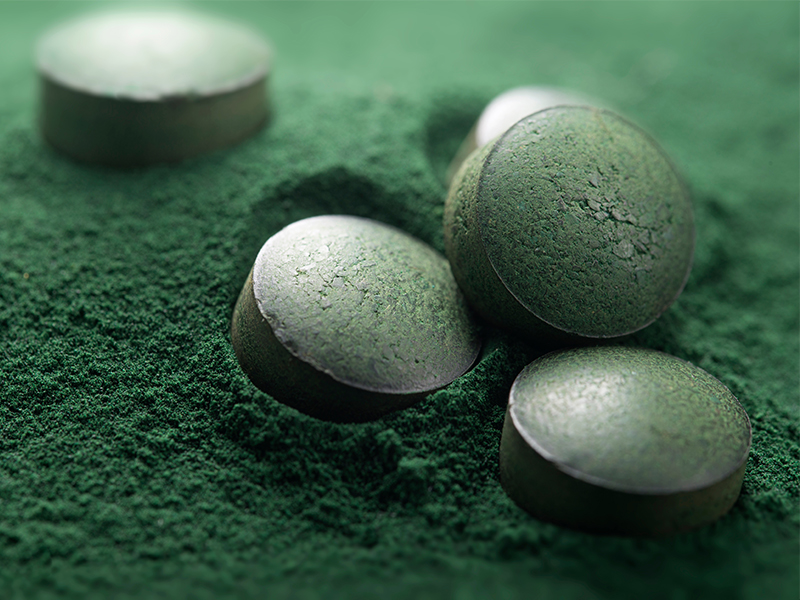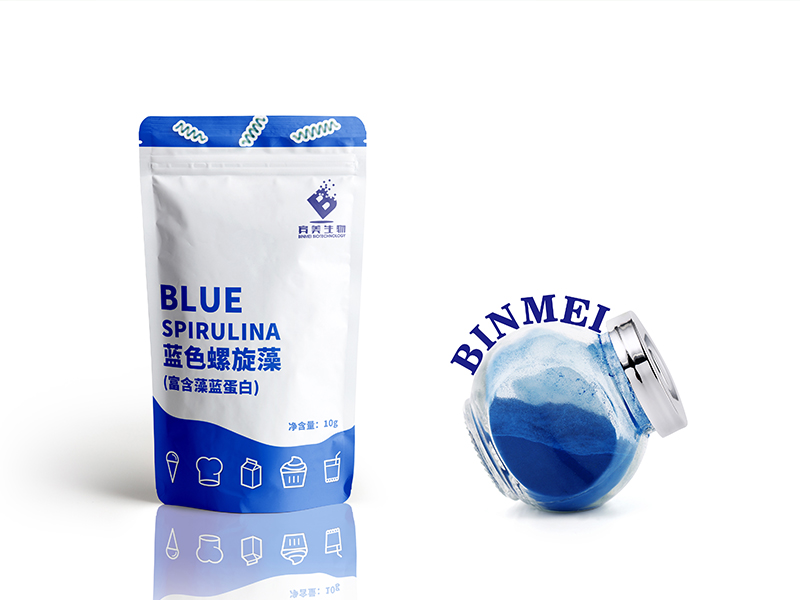The Star of Algal Protein – Phycocyanin
Consumer’s interest in natural products creates opportunities for products from organic sources. Algal protein with rich nutrients, in this case, got a huge demand from consumers. It is reported that the global algal protein market has reached the US $690.8 million in 2018. The algae biomass industry in the EU is worth 1.69 billion euros, according to a report of the European Commission in 2018.
Increasing algae in diets may help meet some of the food production needs associated with expected population growth, said the report. Dietary supplement companies such as NOW Foods and Vimergy LLC have started offering products containing algal proteins. In this case, the algal protein market is expected to grow at a compound annual growth rate of 6.6% in 2018-2023 and reach US 1.2 billion dollars by 2023. There is no denying that more and more companies will be operating in the algal protein market in the coming years.

Marine algae and freshwater algae are the two main resource of algal protein, both containing rich in minerals and vitamins and widely used in the nutritional food industry. Red and brown algae are kinds of marine algae that contain vitamins, minerals, and proteins that are good sources of essential fatty acids in the human body. It is expected that the annual composite growth rate of marine algae will increase 7.5% in the next few years. As for freshwater algae, such as spirulina and chlorella, account for nearly 69 percent of the industry’s revenue in 2018.
Spirulina, a kind of unicellular microalgae, is considered to have the greatest potential to produce single-cell protein. In fact, it accounts for the highest market share in 2018 in algae products. Spirulina grows in alkaline water lakes, containing up to 60% to 70% protein (while soybean flour contains only 35% protein). BINMEI is one of the most influential manufacturers of research and development for spirulina extract in the world. Its spirulina cultivation base is located in the Ordos Plateau of Inner Mongolia, China, where the best growth conditions of spirulina are gathered. Spirulina cultivated by BINMEI here with low heavy metal content but high protein content.

Compared with other microorganisms, spirulina has attracted the attention of many food or feed producers because of its low nucleic acid content, high vitamin, and mineral concentration, and easy digestion of cell walls. Spirulina radiates its application to an extensive scope of the medicine and cosmetics industry due to its nutritional value in the contraction with soybean, whey, and pea.
According to EABA and Research’s latest reports, the global spirulina market is expected to grow at a compound annual growth rate of 9.4% from 2019 and reach the US $629.6 million by 2025. In terms of quantity, the market will reach 68025.2 tons by 2025.
Spirulina standing out among all algae can contribute to the phycocyanin, a dark blue powder separated from spirulina. Phycocyanin has become the most attractive natural pigment globally due to its characteristics and rare blue and favored by food and beverage industries that occupy the largest share in the entire phycocyanin market.

The European Food Safety Agency (EFSA) banned EU countries from using synthetic pigments in food, driving the growing trend of replacing artificial pigments with natural pigments. The action once again promotes the demand for blue phycocyanin.
Organic food has gotten a solid consumer base and been developed rapidly in developed countries. Blue spirulina extract is representative of organic food characterizing the functions of anti-cancer, promoting blood cell regeneration, maintaining ovary, and promoting the synthesis of elastin in the human body. Therefore, it is popular in functional food and protein-enhanced drinks. Besides, phycocyanin is also used as a potential medicine to be a new hot spot in the field of drug research because of its antioxidant property.
It is because of these valuable characteristics that blue phycocyanin is renowned as “diamond food” by food experts. It will see more and more possibilities in cosmetics, medical, biological reagents, and agriculture industries in addition to the food and beverage industry in the future.
If you are interested in the natural spirulina extract of BINMEI, welcome to contact us.
